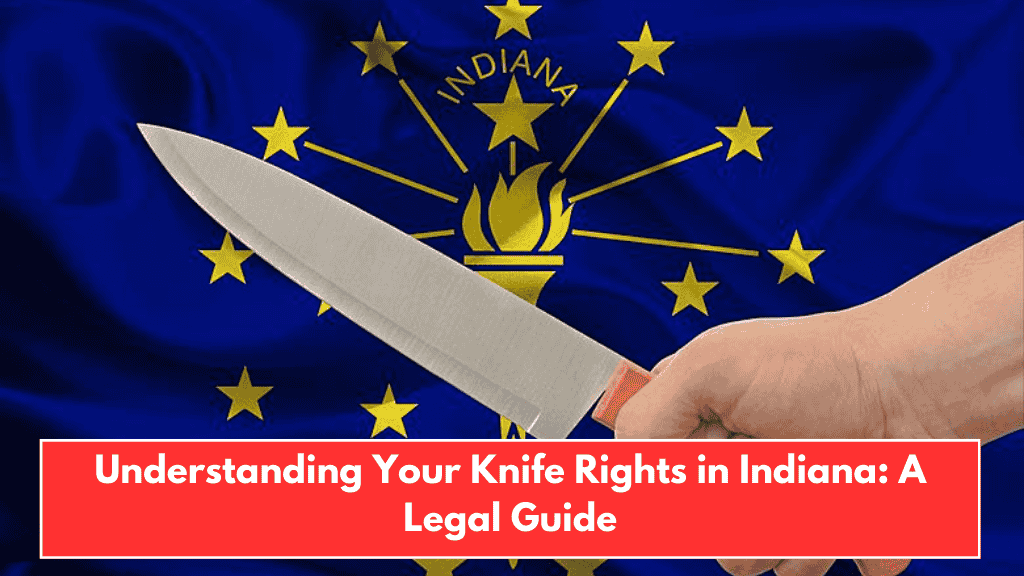Indiana’s knife laws are designed to regulate the possession, sale, and carrying of knives to ensure they are used safely. Whether you’re a hunter, Boy Scout, or just someone interested in knives, understanding these rules is essential. The laws aim to prevent the misuse of knives, especially in public places, and to ensure that everyone stays safe.
Overview of Knife Regulations in Indiana
Indiana’s knife laws became clearer after several important changes, including one in 2013 that lifted the ban on switchblades. These updates have made it easier for people to buy and own certain types of knives, but the laws are still strict in some places, like schools and government buildings.
Switchblades and Automatic Knives
One of the biggest changes in Indiana’s knife laws was the lifting of the ban on switchblades in 2013. This change made it legal to buy and own automatic knives, which are now allowed for collectors and users. However, it’s important to know that some places still don’t permit owning these types of knives, so always check local regulations.
Concealment and Blade Length Restrictions
Indiana is more relaxed when it comes to blade length and concealed carry. There are no specific restrictions on how long a blade can be, and you don’t have to worry about hiding your knife when you’re out in public. However, schools, buses, airports, and public buildings have strict rules that prohibit carrying knives, especially concealed knives.
Prohibited Knives in Indiana
While many knives are legal to own and carry, Indiana has rules about certain types of knives to protect public safety. Below are some types of knives that are prohibited in the state:
1. Ballistic Knives
Ballistic knives, which can shoot their blades out, are completely banned in Indiana. These dangerous knives are considered too risky to own, make, or sell. Violating this rule can result in a Class B misdemeanor charge.
2. Chinese Throwing Stars
Also known as shuriken, these are illegal in Indiana. Though often associated with martial arts, they are prohibited for sale, possession, or manufacturing. Being caught with a throwing star can lead to a Class C misdemeanor charge.
Knife Carrying Restrictions
Indiana has specific rules about where knives can be carried, particularly in sensitive locations. Knowing where you can legally carry your knife is key to staying out of trouble.
1. Schools and Public Buildings
In schools and public buildings, knives are strictly prohibited. These areas are considered weapon-free zones, and carrying a knife in these locations can result in severe legal consequences. This includes carrying a knife for any harmful or threatening purpose. Violating these restrictions is considered a serious offense and is taken very seriously by the state.
2. Using Knives Recklessly
Indiana also has laws that govern the reckless use of knives. Using a knife in a violent or reckless manner, such as committing a violent crime with a knife, is classified as a felony. This highlights Indiana’s commitment to keeping the public safe from violent acts involving knives.
Understanding Indiana’s Knife Laws
The key to staying within the law in Indiana is understanding the knife regulations. The state provides a lot of freedom for people to own and carry knives for various activities, such as hunting, scouting, and personal use. However, there are still rules about where and what types of knives are allowed to ensure everyone’s safety.
Indiana’s laws don’t heavily regulate the size of knives or whether they should be concealed. But it’s essential to respect the law, especially in sensitive areas like schools and government buildings, where knife possession is prohibited.
Indiana’s knife laws strike a balance between personal freedom and public safety. The state allows people to own and carry knives for many legitimate purposes, but there are certain restrictions to protect the public, particularly in schools and government buildings. By following these rules, knife owners can enjoy their knives responsibly while helping to keep the community safe.
Make sure to stay informed and always follow the law when it comes to knives. This ensures that you can use your knives safely and legally while supporting the overall safety of your community.














